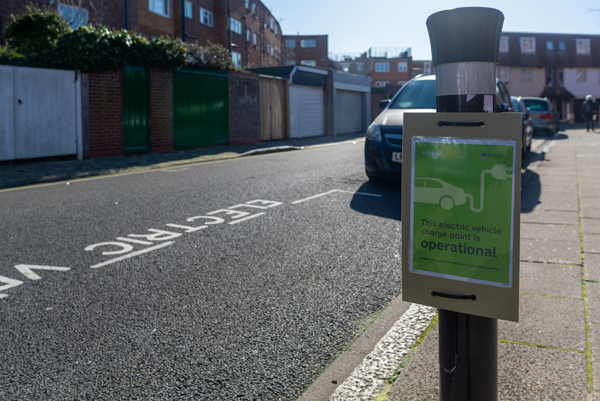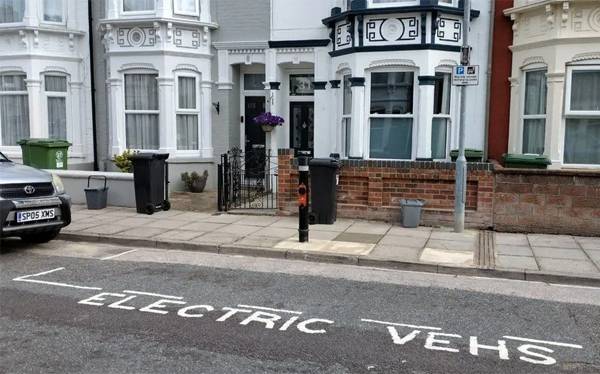Portsmouth City Council has announced plans to more than triple the number of on-street charge points over the next three years.
The highway authority, which has been awarded over £4m in government funding, described the move as part of its ongoing commitment to advancing sustainable travel options for a ‘cleaner, greener city.’
It said it is currently in discussion with operators who are tendering to install up to 320 new on-street chargepoints, which are planned to be in place by spring next year.

Peter Candlish, cabinet member for transport, said: ‘We know that the number of people choosing electric vehicles is increasing in the city, so this is a vital boost to help people make the change to EVs, following the recent issues with on-street chargers in the city over the past year.’
The council said that under its recently adopted EVI strategy, new and innovative approaches to EV charging will be explored to make it simpler and easier for people to charge EVs.
This includes ideas like allowing ‘gulley charging’, a way for people to more easily charge from home without obstructing pavements.
Last November, 98 lamppost-based charging points (below) across the city were disconnected after Scottish and Southern Electricity Networks (SSEN) raised safety concerns about how they were connected.
The council has gradually reinstated the charge points since then.
It said it continues to work with chargepoint operators and SSEN and plans to re-energise 20 more of the existing EV chargepoints over the next six weeks, ‘ensuring that safety concerns have been addressed and necessary modifications made’.
It added that ‘as a pioneer local authority for on-street EV charging, there were inevitably some teething problems, but this has been very helpful in ensuring that the new, much larger set of installations will not have similar issues’.

Drew Meehan, EV expert at TomTom, said that councils taking proactive steps to expand EV charging infrastructure is crucial for building a more accessible and reliable charging network.
He said: ‘Although the UK has seen a 41% year-on-year increase in public chargers, achieving ubiquitous access to reliable and cost-effective public charging infrastructure remains the ultimate goal.
‘To fully support this transition, local authorities should collaborate with industry leaders to standardise charging technologies and ensure interoperability across different networks.’





